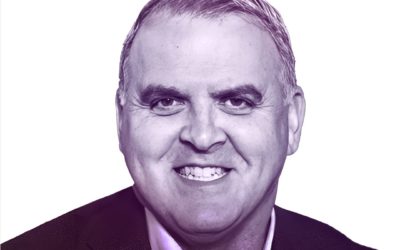History, not headlines, will help us navigate through these financial crisis.”
Sagar Shah is a financial advisor with Shah Financial, a premiere financial planning firm. They work with a lot of physicians, retirees, business owners, executives, and use an integrated approach to the concept of financial planning. They help clients navigate through the financial roadmap, be it an insurance focus, investment strategies, retirement income planning, even opportunities of 401K or IRAs, -that constant voice during difficult times.
The markets are a mess, what do we do now?!
Anthony DeGraw: I wanted to ask you, dealing with your current clients and prospective clients, what is the main question you get asked? What are they asking you, during this time?
Sagar Shah: What clients are asking right now is should we move to cash? When is the market going to bottom? Are we at the bottom? When’s it going to go back up? When’s this whole pandemic going to end? They’re asking, what is that we can do? I want to never downgrade the Coronavirus pandemic that we’re facing right now, but I also want to help clients understand that we have to stay the course. We have a philosophy in play, and this pandemic should not alter the way we’ve done financial planning for our clients, that is a longterm game.
Sagar Shah: A couple of things that we are doing with our clients right now is we’re rebalancing their portfolios. We’re monitoring the markets daily, and at times, when it makes sense, we may take our clients bonds, or commodities, or fixed income strategies funds and dump them into equities. We feel like it’s an opportunity to get heavily involved in the down market, because that’s important to get these accounts at a discounted rate.
Sagar Shah: The other thing that we’re doing is also, we’re investing a lot of cash into our clients’ portfolios. We all know the concept buy low, sell high. I’m all for it, markets are low. This is a historical opportunity for young professionals, young individuals to dive into the stock markets, and get their money invested, it’s okay. If you have some money on the sideline, cash sitting underneath the couch, somewhere in your bed or somewhere, dump it in.
Sagar Shah: Lastly, just update your financial plan. I think it’s important to make sure, during this time more than ever, stress test your financial plan. Make sure your ducks are in a line, Is are dotted, Ts are crossed, because this is the important factor of why we have a plan. It’s not just product selling, but it’s also planning.
Should I get life insurance now?
Sagar Shah: It’s funny, as we’ve been following the markets, the other flip side of it is life insurance has taken an increase in sales. It’s interesting to think, because we are now facing a horrific pandemic, unknown, challenging days, we don’t know when our next breath is going to be, [inaudible 00:09:08] a sense, so life insurance sales have gone up tremendously. But it’s funny, I always share with all my clients when we do financial planning that, “Hey, life insurance is a piece of the puzzle. It is important to have it, it’s the foundation to everything else that we do.” But, no one ever considers it to be important because it’s morbid, like you said.
Sagar Shah: We don’t know when we’re going to die. If I gave everyone a timeline saying, “Hey, you’re going to die in the next five days,” I’d bet you, life insurance is going to go up in all the families’ conversations because you have a timeline. But again, life insurance is a key, essential piece to the blueprints, or the financial product line, when doing planning. That, alongside the disability income planning.
Look at the S&P over 50 years
Anthony DeGraw: You posted to your story on Instagram a picture of the S&P 500 over the last 50 years, during macro and micro epidemic events.
Sagar Shah: What I wanted to help our clients understand, or our audience, is history not headlines will help us navigate through these challenging things. What I mean by that is if we look at events, such as the 1987 stock market crash, if we look at the September 11th, 2001 terrorist attacks, the Lehman Brothers and the bankruptcies that happened in 2007, 2008, the Brexit, those events were also, at that time, unprecedented. We were unknown, it was challenging, we were unsure of what was happening. But, the market did a decline, and as always the market has rebounded back up. Sure, in events it might be geared towards a specific country, or a specific state, or a specific party, but the markets are global. What happens one place happens across the country.
Sagar Shah: So, what I wanted our audience and our clients to understand through that image is, again, history not headlines will help us navigate through these financial crisis. Sure, it may not be a straight down, sharp fall, and a sharp return. It might not a V-shaped return this time, we might be in a U-shaped return. But, if we stay the course, and we understand the longterm game of this, we will come back on top. I think the ones that are sporadic, making quick decisions, selling their accounts, or making decisions that they weren’t really supposed to make, they’re going to get affected longterm, where the patient investor will come up on top.
Are Robo Advisors worth it?
Anthony DeGraw: What is your opinion here, being in the industry for so long, on the robo advisors that have come out over the last couple of years? Probably, four or five years now. When should somebody think about using them? When should somebody think about using a financial advisor? Also, can they be used in tandem with each other?
Sagar Shah: Sure. That’s a great question, Anthony. I think it’s a big platform that our generation uses, and they rely on. So when it comes to the concept of robo advisors, I think they’re great, I don’t downplay them at all. I think for some young professionals that want to just have some fun with the market, get some money into the investment world, go for it. Have fun, use different platforms. But on the flip side, I don’t think you should use those platforms as a sense of retirement. I don’t think you should take your hard earnings and have an algorithm that’s just going through the regular steps be your all end and be all platform.
Sagar Shah: Can they work together? Can you have a robo advisor and a financial planner? Sure, I actually have a handful of clients that I recommend saying, “You know what? You should actually put your money with this platform, and allow us to manage your other aspects of the financial plan, your longterm, home run, actively managed portfolio accounts.” Have some fun with that, I’m okay with that, but I don’t think, again, you should have your hard earnings, retirement dollars, be invested in the robo advisors.


